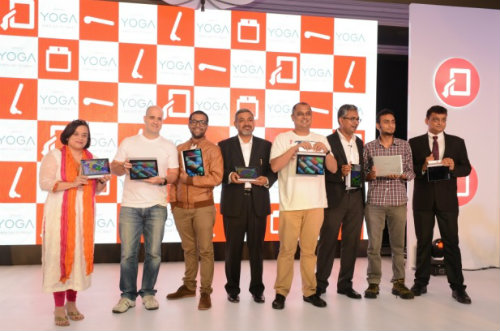Android O beta released, along with Android Go
On Day 1 at Google I/O at the Shoreline Amphitheater at their Mountain View headquarters, Google celebrated a big milestone of reaching 2 billion monthly active Android devices globally. At the event, Google showcased a number of ways they are working on to make Android even more useful, including a beta release of Android O and a new initiative to help bring Android to the next billion users.
Android O: fluid experiences to help you do more
Android O, coming later this year, will bring more fluid experiences to your smaller screen, as well as improvements to areas of the phone called “vitals” like battery life and security. With picture-in-picture, you can seamlessly do two tasks simultaneously, like checking your calendar while planning a party on a Duo video call. And Smart Text Selection improves copy and paste—because who enjoys fumbling with text selection handles? By using machine learning to recognize entities on the screen—like a complete address—you can easily select text you want with a double tap, and even bring up an app like Maps to help navigate you there.
Under the hood, Android O aims to make your phone startup quicker and your apps faster, with added optimizations for developers to help prevent your battery from draining. Because with all of Android O’s new features, you’re going to want a device that can last all day. Android O will begin rolling out later this year, but developers can try the preview at android.com/beta now.
Reaching the next billions of users with a new initiative: Android Go
This is a new configuration of Android — an initiative for entry-level Android devices. The goal of Android Go is to get computing into the hands of more people by creating a great smartphone experience on all Android devices with 1GB or less of memory.
Android Go is designed with features relevant for people who have limited data connectivity and speak multiple languages, and comes to life through three key areas: the Android OS, Google apps, and the Google Play Store. It is an optimization of the latest release of Android, starting with Android O, to run smoothly on entry-level devices.
It will also consist of specially designed Google apps—like YouTube Go, Chrome and Gboard—to use less memory, storage space and mobile data. And there will be a version of the Play Store that highlights apps specifically designed for the next billion users coming online, while still offering the entire app catalog.
All three of these things will ship together, as a single experience, starting in 2018.
Keeping you safe with Google Play Protect
Today Google introduced Google Play Protect—a comprehensive set of security services for Android, providing powerful new protections and greater visibility into your device security. Play Protect is built into every device with Google Play, is always updating, and automatically takes action to keep your data and device safe, so you don’t have to lift a finger. Play Protect detects and removes apps that might be harmful. And with more than 50 billion apps scanned every day, Google’s machine learning systems are always on the lookout for new risks. Also being launched is ‘Find My Device’ as part of Google Play Protect, allowing you to locate, ring, lock and erase your Android devices—phones, tablets, and even watches. Google Play Protect is available out-of-the-box on every Android device with Google Play.
@Technuter.com News Service



